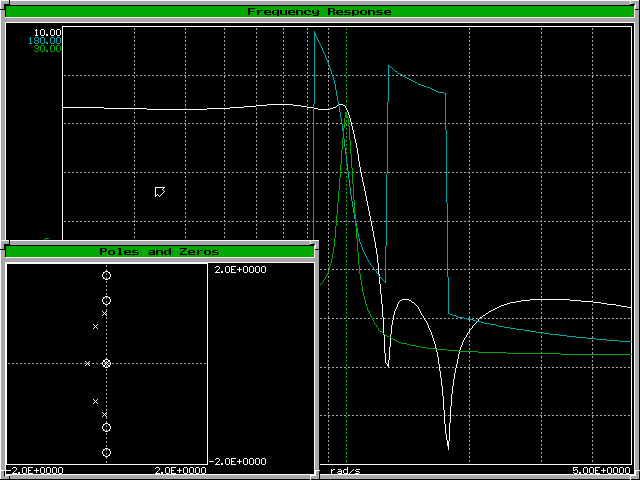
The IFFT program analyzes linear circuits, computing transfer functions in Laplace transform. From the transfer functions, in a ratio-of-polynomials form, the program can compute poles and zeros an plot frequency response graphs. The program was developed as a tool for fast verification of continuous time filter designs. It is also useful for other purposes, as:
The EdFil editor is included in all versions. It provides easy circuit entry in schematic form, requiring only a minimum of information, typing, and care with the schematic layout
The use of the IFFT program is free for academic, noncommercial purposes. For commercial use, please contact the author.
The files are compressed in the "zip" format.
The DOS versions can be executed under varios operating systems using the DOS emulator DosBox.
The picture above shows the simulation of an active filter realizing a 5th-order elliptic filter. The frequency response is as expected, but the structure has a natural frequency at zero, that appears as a pole-zero cancellation there. This may be a problem in an actual construction, because the circuit has undefined DC voltages or currents somewhere on its structure.
Developed and Maintained by Antonio
Carlos M. de Queiroz
Last update: 2/7/2012.